Calpe (original) (raw)
Calpe
Consider this a cordial invitation to Calpe!
Calpe (or Calp, in valencian) is a popular resort on the Mediterranean coast in the province of Alicante, just north of Altea, another "pearl" of the Costa Blanca.
The city has a rich and varied history and has preserved archaeological monuments from different cultures and eras: Iberian, Phoenician, Roman, Arab... And when it comes to natural beauty, it is impossible not to mention that Calpe lies at the foot of the Peñón de Ifach mountain and its nature reserve (more on that later).
Although its population has been in decline since 2011, losing more than 1/3 of its population (in 2011 there were almost 31,000 inhabitants and in 2016, about 19,600), in the last decade we have seen how this trend has been reversed, with a population of 24,096 people in 2022. According to data from the INE and the Diputación de Alicante in 2021, more than 48% of the residents are foreigners, mainly from the United Kingdom, Romania and Germany.
Calpe Zones
- Cometa
- Maryvilla
- Manzanera
- Old Town
- Carrio
- Ortenbach / Ortembach
- Playa Arenal-Bol
- Canuta
- Les Bassetes
- Gargasindi
- Oltamar
- La Empedrola
- Puerto / Port
- Playa de Fossa
Where is Calpe located?
Calpe has no airport of its own, but it's not a big deal, you can still get here easily enough, even without your own car.
The first variant is to take a plane to the airport of Alicante, then board Alicante Tram L1, get off in Benidorm, and, finally, take L9 to Calpe. The whole trip takes about 2 hours, but they will pass quickly because of the beautiful window views this route provides. The fare is about 7 euros.
The second variant is to, once again, get a flight to Alicante, then leave by one of the direct buses that only travel 4 times a day. Then, you’ll be in Calpe in an hour and a half, with eleven euros less in your wallet.
What kind of weather can you count on?
The climate in Calpe is fairly typical of the Mediterranean region. Summers are warm but not too hot, and winters are mild. The temperature reaches the maximum of 30°C during the warmest month, August, and the minimum of 17°C during the coldest month, January. The average amount of precipitation is low (highest of all in September), and the mountains protect the inhabitants from harsh winds. Thanks to all of this, the beach season here lasts longer than usual.
What sights has Calpe got in store to make you fall in love with it?
Peñón de Ifach
The giant limestone rock of Ifach is the true symbol of Calpe, proudly towering 332 meters (1,089 feet) above the city. Part of the mountain is recognized as a nature reserve, and with an area of only 45 hectares, this reserve can be counted among one of the smallest in Europe - but by no means the last and least in popularity, with more than 100 thousand visitors a year.
Throughout the city's long history, the rock has served different, but always important roles, whether as a landmark for sailors or as a watch post from which, thanks to its great height, one could more quickly spot approaching Berber pirates.
The Salt Lake (Las Salinas)
Las Salinas Natural Park is a must on a visit to Calpe, within walking distance or a five minutes drive from the city center. At its heart lies a large lagoon and, as you can guess from the name, its filled with salt water. What makes this place so special, however, is not primarily that, but a colony of bright pink flamingos, which you can admire up close, and about 170 other different species of birds. The urban landscape is reflected in the waters, creating an interesting contrast to this oasis of wildlife, which is under serious governmental protection from pollution. Picnic tables are scattered around the lagoon, so you'll have a chance to take your time and enjoy the spectacle comfortably.
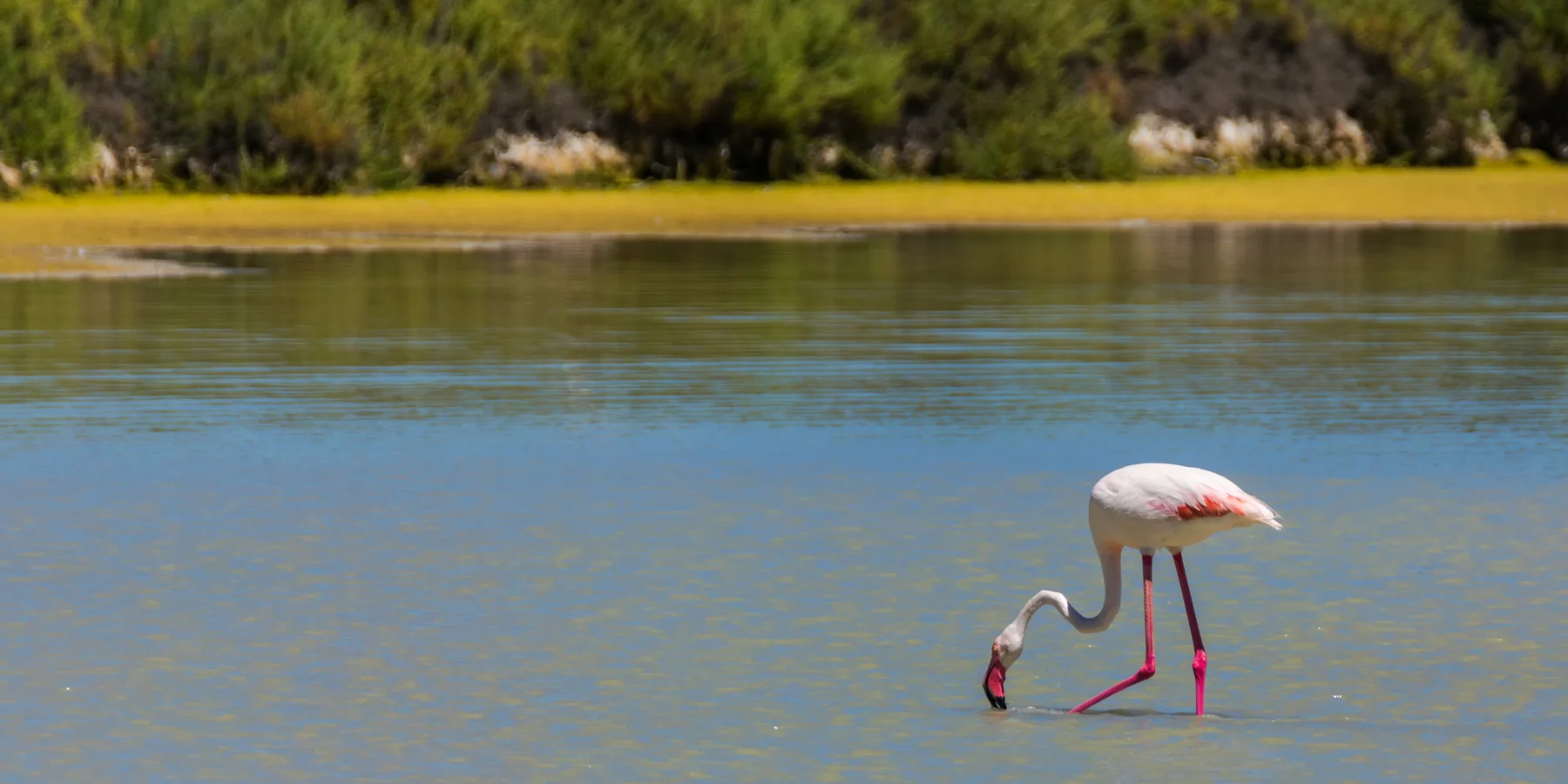
Image of a Flamingo in Las Salinas Natural Park Calpe
The Queen's Baths (Los Baños de la Reina)
Since the 16th century, these structures have been called Los Baños de la Reina (The Queen's Baths) because many believe this place was originally (in Ancient Rome) designed for bathing. The water came to the baths through canals, making bathing a quiet and pleasant experience, since the barriers reduced the force of the waves. Another theory is that the Romans built these facilities, worn away by water over the centuries to the point of no longer being recognizable today, for salting fish. This theory is based on the presence in the immediate vicinity of both fresh water and salt water, and fish such as mackerel and tuna.
Old Town
The old town (Casco Antiguo) is a small quarter where, more than anywhere else, you can really discover the soul of Calpe in all its beauty, where you can get lost among the narrow streets and brightly painted traditional Spanish houses. There are also many impressive historical monuments here, such as the remains of the Moorish fortress wall and a Moorish Church of the same period - la Iglesia Antigua - built in the fascinating Moorish Gothic style (the bell tower is particularly exquisite). And next to the defensive tower of Torreón de la Peça, built somewhat later, two of the four surviving cannons that helped the city repel Berber pirate attacks are on display. Finally, more recently (on the scale of history), in 1973, the Church of Nuestra Señora de las Nieves, a gem of modernist architecture, was erected in the Plaza de la Villa. Sublime facade mosaics and stained-glass windows depict scenes from the Old and New Testaments, while inside the decoration is characterized by a refined, virtuously modest simplicity. The traditional altar is replaced here by a gilded statue of the Virgin Mary with the Child.
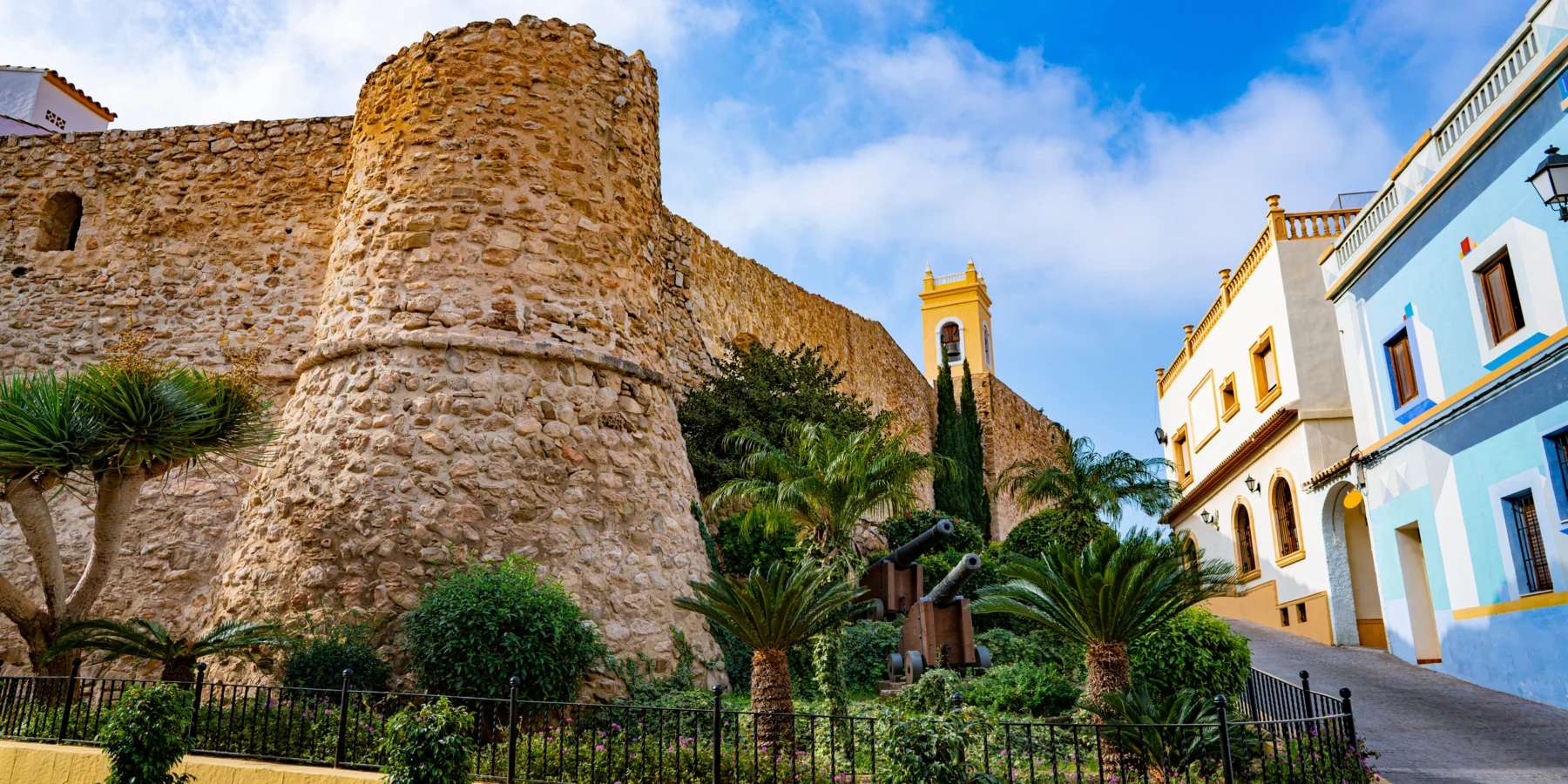
Old town of Calpe
Outdoor activities
Despite its small population, Calpe can boast of many restaurants, nightclubs and bars (including karaoke bars and bars that regularly host live concerts and flamenco shows in the summer).
The possibilities for outdoor activities are endless: you will find excellent conditions for sailing, fishing, diving, water skiing, windsurfing, rock climbing, tennis, golf, volleyball... not to mention the variety of adventures that you would have the chance to go on out in the open sea, if you wanted to: you could rent a small boat or a luxury yacht, you could go on a mini cruise (there are many options, too, such as heading to Benidorm, Denia, Altea) or you could brave the high seas for a swim or a romantic dinner. Whatever you want, really!
Museums
Considering its size, Calpe has an impressive array of museums, each with their own charm. Step into any and you'll come out with a better understanding of Spanish culture, both factual and emotional, intuitive, as if it had become nearer and dearer to you all of a sudden.
Here are a few of the museums we suggest you visit:
The Ethnological Museum Casa del Coco
Here you can learn about the early history of Calpe, the origins and development of traditional activities such as winemaking and fishing, which are inseparable from local life.
Address: Partida Garduix, 1, 03710 Calpe, Alicante
Archeological Museum, or Museu de la Senyoreta
It houses artefacts dating back somewhere between 300 and 800 A.D. such as items buried with the bodies of the dead or discovered during the excavations of the Queen Baths, as well as kitchen utensils and coins. The museum building stands out visually because of a beautiful bell tower right in the center of the symmetrical facade.
Address: Calle Santisimo Cristo, 7, 03710, Calpe, Alicante
Museum of Festive Costumes, Museu Fester
The exhibits, for the most part, are authentic costumes, having truly been worn by the inhabitants of Calpe during the traditional holidays, year after year. As for the building itself, the museum, very appropriately, is located in an eighteen century building on the edge of the Old Town, a building with a rich history: from 1905 to 1916 it served as the Town Hall and the Court, later replaced by a store and a tavern.
Address: Calle de la Llibertat, 6, 03710, Calpe, Alicante
Museum of Collectibles, Museo de Coleccionismo
It exhibits numerous collections, both private and public. The exhibits are extremely diverse and include primitive cameras, old dolls, cutlery and much, much more, depending on the interests of one collector or another. Visiting the museum is like going to a curiosity shop or taking a trip in a time machine. Interestingly enough, the Museo de Coleccionismo is located in the Torreon de la Peça, the defensive tower that we mentioned above when talking about the Old Town.
Address: Plaça de la Villa, 15, 03710 Calpe, Alicante
Gallery of Contemporary Art, Ajuntament Vell
Modernity finds itself here neighbouring ancient history: the gallery is close to the site where there used to be a gateway to the walled city, a gate intended to serve as a last bastion in case the city walls were to be successfully stormed by enemies. The building now belonging to the gallery once contained a small chapel, where it was customary to place a candle to ask for a loved one’s recovery, and in the basement there was a prison. Once again, an interesting contrast, isn't it?
Addresss: Plaça de la Villa, 20, 03710 Calpe, Alicante
Fish Auction (Lonja)
Every day, from Monday to Friday, starting at 17:00, in the restaurant La Lonja de Calpe, a fish auction takes place. The gist of it is the wholesale of fresh fish caught the day before at sunset by the Calpe fishing fleet under the leadership of the Cofradía de Pescadores, which without exaggeration can be called one of the pillars of the local economy. Tourists often turn up at the auction, and indeed, the atmosphere being undoubtedly, absolutely unique, why not dedicate a couple of hours to this unusual experience?
Addresss: Explanada del Puerto Pesquero, s/n, 03710 Calpe, Alicante
Calpe Equestrian Club
Just 10 minutes away from the center there is a first-class equestrian club (Club Hípico Calpe) that serves as home to about twenty horses, as well as rescued dogs and cats (whom you can pet and play with) and even a few goats. Adults and children alike may enjoy rides on horseback through forests and fields, admiring the peaceful scenery. Experienced riders are offered challenging cross-country routes, so they won't get bored, either.
Addresss: Partida Salamanca, 4B, 03710 Calpe, Alicante, Spain
Beaches of Calpe
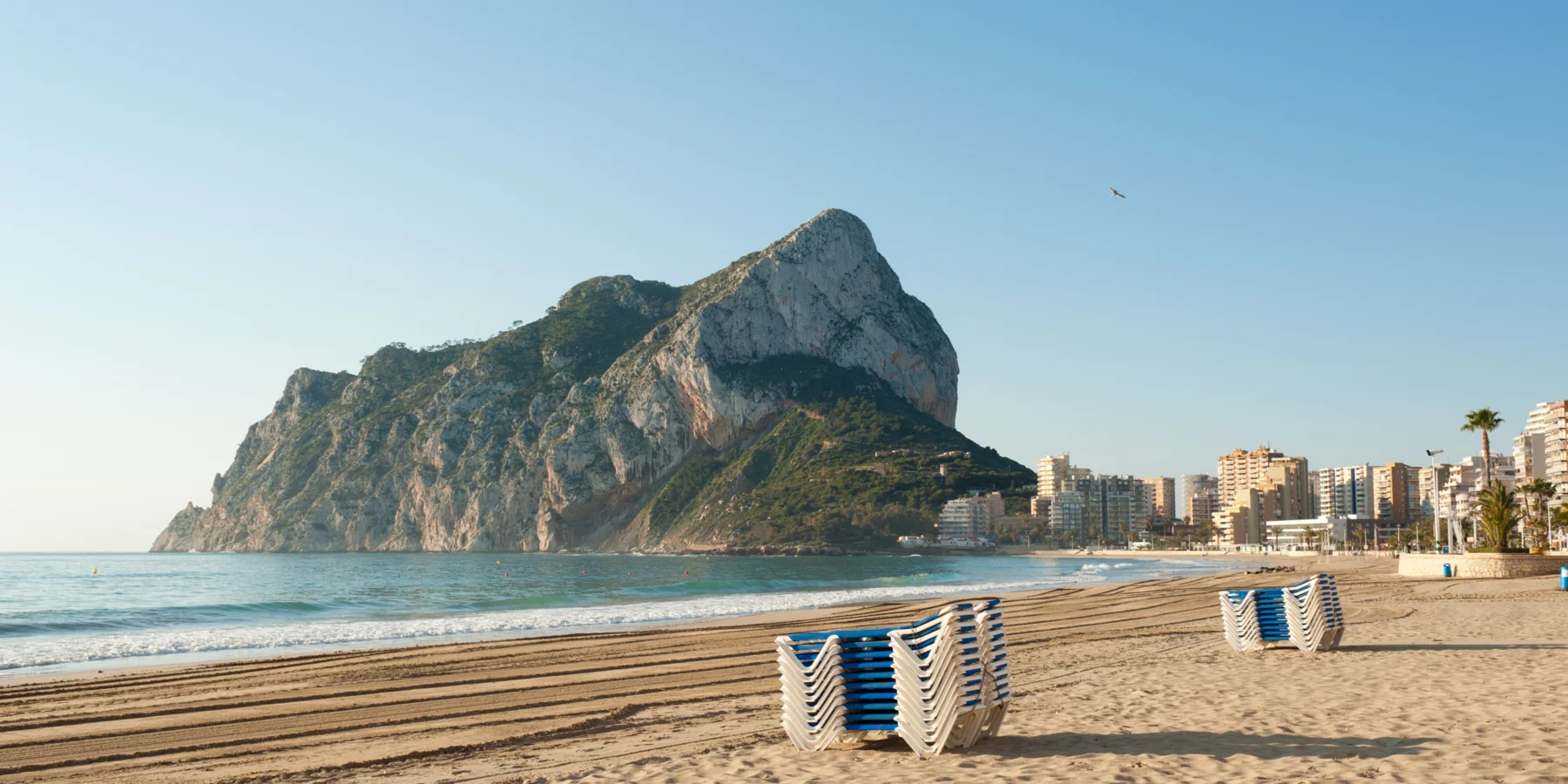
La Fossa Beach in Calpe
14 beaches. Pick whichever, they are all awesome! As a resort, Calpe justly prides itself in its eleven-kilometer-long beach line, with 14 beaches to suit all tastes, from the most famous and popular to the most tiny and secluded, those that are easy to reach on foot and those that are only accessible by water. Several beaches in Calpe have been awarded the "Blue Flag", indicating the almost perfect conditions for recreation and the highest level of quality of tourist services.
Two of the most popular beaches are Arenal Bol and La Fossa. Both have soft light sand, wide shorelines, and all sorts of amenities, including playgrounds for kids and dedicated beach soccer areas. Despite all the similarities, however, there is a huge difference between these beaches, an insurmountable distance: they are separated from each other by Ifach, so you’ll have to visit Arenal Bol and La Fossa separately. Also nestled in between is the marina for yachts and the Prince of Asturias' promenade, a scenic 800-metre-long promenade that offers breathtaking views at every turn.
The beaches we can find in Calpe are:
- Playa Arenal-Bol. The main beach of Calpe. Just 300m from Calpe town centre.
- Playa Del Cantal Roig. It is the continuation of Arenal-Bol beach, 1km from the centre of Calpe.
- Cala del Morelló. Just on the other side of the Cantal Roig beach we find the Cala Morelló, where we can bathe in a Roman archaeological site.
- Playa La Fossa / Levante. This is one of the main beaches of Calpe. It's located at 2km from the Calpe town centre.
- El Racó
- Cala Gasparet
- Cala Calalga
- Cala Manzanera
- Cala Les Bassetes
- Cala Del Mallorquí
- Cala El Collao / Racó del Corb
- Cala Les Urques
- Playa Puerto Blanco
- Cala del Penyal
Restaurants in Calpe
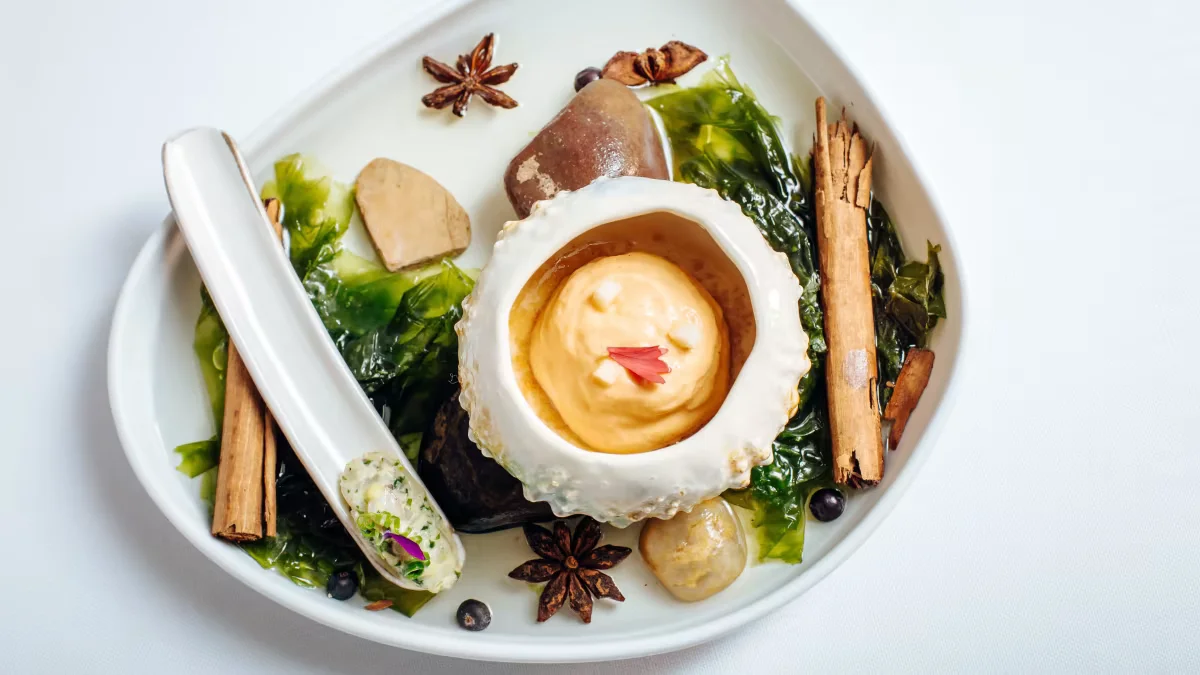
One of the star dishes of the Beat restaurant
Will the foodies enjoy their stay? Most European countries have to import many products, especially fruits and vegetables, making them lose some of their freshness, taste and nutritional value. Here, on the other hand, the food usually arrives on your plate straight from the farm (or from the depths of the Mediterranean Sea). And even the most demanding gourmands will appreciate the Peñon de Ifach wine (named after the main local landmark, and just as worth checking out).
According to data from the most popular restaurant rating portals such as Tripadvisor and thefork, here is a list of some of the best rated restaurants.
- Audrey's Restaurant. Restaurant with 1 Michelin star. Its speciality is the cuisine of its roots. It is located in the AR Hotel in Calpe, on Avenida Juan Carlos I 48.
- Beat. The gastronomic restaurant of the Gastro Boutique Spa The Cookbook surprises with its creations, always original and beautiful. Its mission, in its own words, is to create an experience that involves all the senses and the rhythm of the heart. It is located on Partida Marisol Park 1
- In Bocca al Lupo Calpe. Italian restaurant with a beautiful terrace, where you can eat one of their homemade pizzas, pasta and traditional Italian desserts in front of La Fossa beach.
How to get around the city without a car?
Calpe, despite its small size, has as many as three bus lines that allow you to easily get wherever you need to go. The third line actually has fewer stops in the city itself, but travels as far as the neighboring village of Teulada-Moraira.
And in the summer, specially for visitors, there is a little tourist train (Tren Turístico Calpe), whose seven-kilometer route includes stops near most of the main attractions. At any of them you can get off and get back on when the train passes through that station again, usually in about half an hour. It's a great way to explore the city, cheap, convenient and practical. The ticket costs only 4 euros for adults and 3 for children.
Where to shop in Calpe
One of the places you will visit the most if you live in Calpe will be the supermarkets, and of course you will always look for the best ones in the area. Here is a list of some of the most sought after supermarkets.
Lidl Calpe
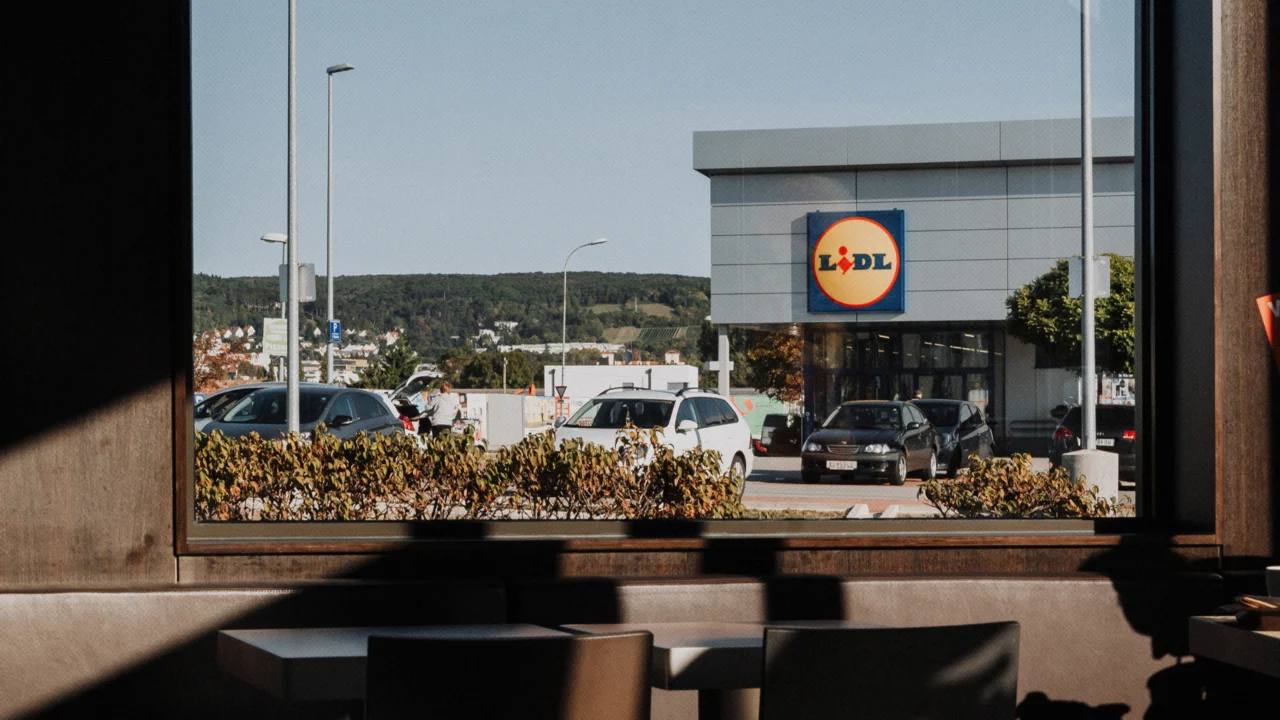
Lidl Calpe is one of the most sought-after supermarkets by the public
Many people search the internet for information about the Lidl in Calpe, maybe they don't know its location or they want more information about it, maybe a picture, we show you here all the information about Lidl Calpe!
Lidl Calpe is located on Avenida Romania, a main artery of the town of Calpe. It is located very close to the natural park of Las Salinas and the Sol de Calpe Austral campsite, surrounded by urbanisations.
Lidl Calpe Contact Details
Address: Av. de Rumania, 9, 03710 Calp, Alicante
Phone: +34 900 958 311
Opening hours:Monday to Saturday from 9:00h to 21:30h - Sunday closed
Website: lidl.es
Catalogues and offers: tiendeo.com/calp/lidl
Aldi Calpe
On the same avenue where the Lidl of Calpe is located, but this time at the opposite end, on Calle Suecia, we find the Aldi of Calpe. This is another of the best known supermarkets in the town.
Carrefour Ondara
If you don't mind driving 25 minutes by car, you can go shopping at any of the 2 Carrefour stores in the shopping centres of La Marina, in Finestrat, and Portal de la Marina in Ondara.
Where could you go outside the city for a change of scenery?
A very popular destination for a short, often one-day trip, is the mountain village of Guadalest with its mesmerising lake of a stunning blue color. And from there it is not far to Les Fonts de L'Algar Reserve, the highlight of which are the Algar river waterfalls.
Another nearby place definitely worth visiting is the coastal town of Villajoyosa, mostly famous for its incredibly brightly painted façades of fishermen's houses on the shoreline - a sight that is bound to lift your spirits.
You can also, of course, go to Altea, Benidorm or Benissa, other popular resorts on the Costa Blanca, quickly and easily.
What new holidays will you be adopting into your calendar?
Andalusian Fair
For many years now, the House of Andalusia in Calpe has been hosting a fair in mid-July to maintain and celebrate the Andalusian spirit.
There are too many events happening simultaneously to list: horseback riding displays, flamenco dancers performances, dance workshops, gustation of typical Andalusian food and drinks, such as rebujito, a cocktail made with a traditional type of sherry, manzanilla, and sodas. This unbridled wave of fun sure won’t leave you indifferent, and the temptation to join in will be irresistible!
Fallas
The Spanish word "fallas" comes from the Latin facula, that means "torch", and that alone gives us a hint as to who the main character of this holiday, celebrated in March, is: fire.
Giant figures of wood and papier-mâché are being made left and right (and then, on the last day of the festivities, solemnly burned). These "dolls" can reach up to 20 meters, and hundreds of thousands of euros are spent on their creation. They can symbolize the characters from folktales, but they might as well be, for example, the allegories for human vices or even a way to express an opinion on the political situation in the country.
Curiously, during the burning of the puppets, firemen often have to keep pouring water on the walls of houses to avoid fires.
Another tradition associated with the holiday is the Mascletà, a procession of pyrotechnicians competing against each other in the spectacularness of their firework displays. While the crowd is enthralled by this extravaganza, people in black shirts and checkered scarves keep popping up all over the place to throw bombs and firecrackers at the spectators' feet - this can be very frightening when unexpected, but you have now been warned, and knowledge is power!
The day of the Blessed Virgen del Carmen
The 16th of July (or the weekend closest to this day) is celebrated in basically the entirety of the province of Alicante, including Calpe, as the day of the patron saint of sailors, the Virgin of Virgen del Carmen. The sailors, or, more precisely, the religious brotherhood of fishermen, organize all the festivities in honor of their patroness themselves. The program is very extensive and includes concerts, fireworks, solemn church masses and more. But the most mesmerizing, the most emotional moment of the holiday, its climax, is when the families of sailors and other people of faith who for one reason or another want to participate, set a huge array of flowers adrift on the waters, offering them as a gift to the Blessed Virgin.
Oktoberfest
For eleven consequitive days in October, Calpe celebrates the traditional German festival - Oktoberfest, and arguably does so on a larger scale than any other Spanish city. All thanks to the community of German expats, who decided to revive this celebration, still near and dear to their hearts, in their new home. Every year more than ten thousand people gather to enjoy the specialties of German cuisine and famous German beer to the sounds of folk music, primarily Bavarian. Another attraction are fun little competitions pretty much unknown outside of Germany, like sawing logs and lifting beer mugs.
What are your options here in terms of real estate?
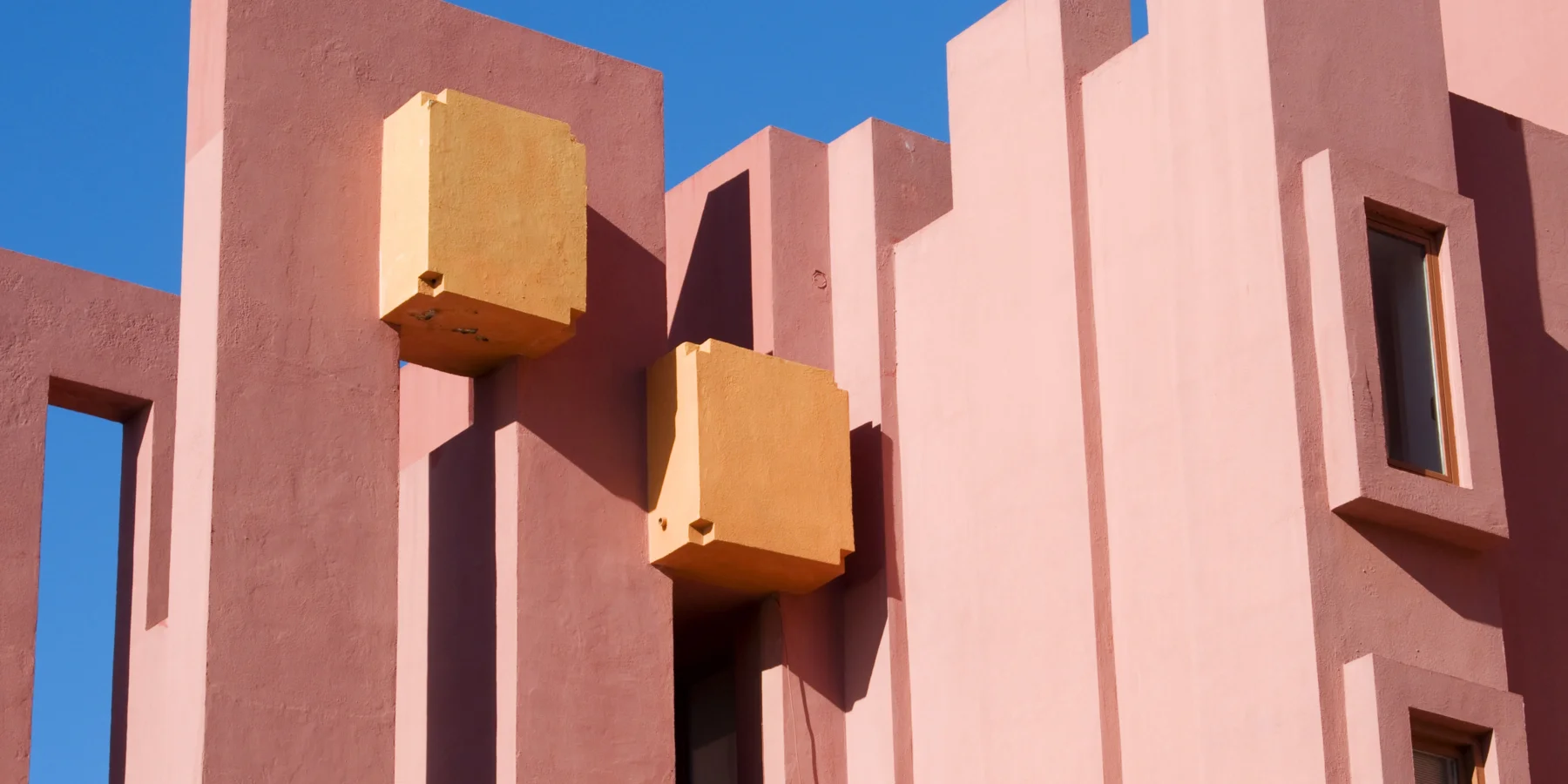
Image of the renowned and awarded building La Muralla Roja, made by the architect Ricardo Bofill in Calpe
If you're looking for buying a property in Calpe, you can find a dream home for all kinds of budgets and of all kinds of types: apartments, bungalows, houses, and villas. The majority of buildings here are newly constructed. However, it is worth mentioning that truly low-price housing is not something you’ll come across very often, which, of course, doesn’t mean it doesn’t exist - you’ll just have to look harder for it, most likely in the north-western part of the town, where living is generally speaking more affordable than in the more prestigious southwestern districts.